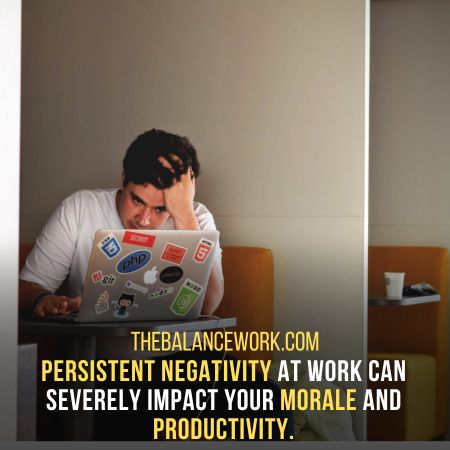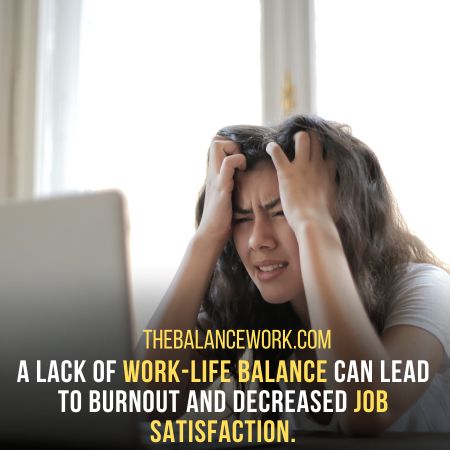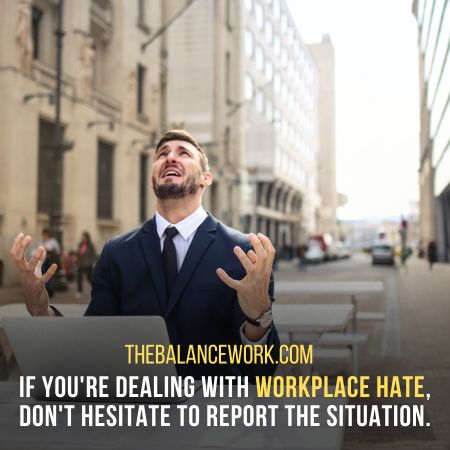In today’s fast-paced corporate world, it’s essential to ensure that our work environment is healthy and conducive to growth.
However, at times, this is not the case.
Unrecognizable at first, hate at workplace can slowly erode your well-being and hamper your productivity.
Here are ten signs to help you identify if you’re in a toxic work environment and guide you on the next steps to take.
10 Signs You Are in a Toxic Work Environment
Navigating a toxic workplace can be daunting and profoundly affect your job satisfaction.
Recognizing these signs can empower you to take necessary action.
1. Constant Negativity
In a toxic workplace, negativity is the norm.
Be it frequent complaints, constant criticism, or a culture of blame.
This persistent negativity can severely impact your morale and productivity.
2. High Turnover Rate
An unusually high turnover rate is a glaring sign of hate at workplace.
If employees leave frequently, it’s often because the work environment is not conducive to long-term engagement.
3. Lack of Communication
Open and clear communication is essential in any healthy workplace.
If communication is often one-way, unclear, or non-existent, it can lead to misunderstandings and conflicts, indicating a toxic environment.
4. No Work-Life Balance
Workplaces that consistently demand overtime, invade personal time, or discourage vacations are likely toxic.
A lack of work-life balance can lead to burnout and decreased job satisfaction.
5. Unreasonable Expectations
If management often sets unrealistic deadlines or expects employees to handle excessive workloads, it’s a sign of hate at workplace.
Such practices can lead to stress and reduced quality of work.
6. Favoritism
Favoritism in a work environment can foster resentment among employees and promote a toxic culture.
If promotions or rewards seem to be based more on favoritism than merit, it’s a red flag.
7. Lack of Employee Growth
A workplace that provides no opportunities for growth or learning is likely toxic.
It’s important for companies to invest in employee development for a healthy and dynamic workplace.
8. Micromanagement
Micromanagement can be suffocating and indicates a lack of trust in employees.
In a toxic workplace, managers often exercise excessive control, stifling creativity and independence.
9. Bullying or Harassment
Any form of bullying or harassment has no place in a healthy work environment.
If this behavior is tolerated or overlooked, it’s a clear sign of a toxic workplace.
10. Unethical Practices
If a company often engages in unethical practices like misinformation or manipulation, it’s likely a toxic workplace.
Ethical behavior should always be the norm, not the exception, in a work environment.

5 Ways to Deal with Hate At Workplace
In a perfect world, workplaces would be devoid of negativity and conflict.
However, reality often paints a different picture with instances of hate and discord.
Here are five practical strategies that every employee should know to effectively manage hate and foster a harmonious working environment.
1. Practice Active Listening
Active listening is a crucial tool in resolving conflicts and diffusing tense situations.
By showing empathy and understanding towards a colleague’s viewpoint, you can often disarm a potential conflict before it escalates.
Aim to fully understand their perspective before explaining yours.
2. Maintain Professional Boundaries
Establish and maintain professional boundaries to protect your mental and emotional well-being.
This includes limiting personal interactions with individuals who have a pattern of negative behavior.
And also by setting clear expectations about your own limits and acceptable behavior.
3. Leverage HR Resources
Human resources departments exist to support employees.
If you’re dealing with workplace hate, don’t hesitate to report the situation and seek guidance.
HR professionals are trained to handle such issues in a confidential and supportive manner.
4. Foster a Positive Environment
Proactively fostering a positive work environment can go a long way in diffusing hate and negativity.
This could include engaging in team-building activities, promoting open communication, or recognizing and appreciating the contributions of others.
5. Seek Support Outside of Work
Having a strong support network outside of work can help you navigate workplace challenges more effectively.
Whether this involves talking through issues with friends or family or seeking professional counseling.
It’s important to have people you can count on to provide advice and emotional support.

What Should I Do My Boss Hates Me?
Confronting your boss and trying to resolve the issue on your own can be a difficult task.
Depending on the situation, it may be best to involve an HR professional or a trusted colleague who can help you navigate the problem and come up with a constructive solution.
Additionally, make sure to document any instances of mistreatment in case formal disciplinary measures become necessary.
Why Do I Hate My Boss?
When it comes to why you may be feeling animosity towards your boss, it’s important to identify the source of the issue before attempting to resolve it.
It could be due to a lack of communication or respect, differences in work style, or simply because you don’t agree with their decisions.
Once you have identified what’s causing your distress, talk it out openly and honestly to ensure both parties are on the same page.
Why Do Employees Hate Their Boss?
Employees may hate their boss for a variety of reasons.
It could be due to a sense of unfairness or mistreatment, lack of recognition for accomplishments, or simply because their expectations are not being met.
Additionally, employees may feel resentment if they are not given the resources they need to do their job effectively or if they feel like their opinion is not valued.
How to Deal with a Co-Worker You Hate?
It can be difficult to deal with a co-worker you don’t get along with.
However, it is important to remain professional and focus on finding ways to work together in an effective manner.
Make sure to communicate clearly and respectfully, be open to compromise, and look for solutions that benefit both of you equally.
If the situation becomes too stressful or unbearable, seek advice from a trusted source.
My Co-Workers Hate Me: What Should I Do?
If you find yourself in a situation where your co-workers are avoiding or treating you poorly, it is important to take action.
Start by finding out why they don’t like you; if it has something to do with how you behave, make an effort to change it.
Additionally, try to talk to them and explain your perspective.
Jobs for People Who Hate People
If you don’t like working with people, there are plenty of jobs that allow you to work alone and independently.
Some examples include programming, web development, graphic design, data entry, freelance writing/editing, accounting, virtual assistant roles, and more.
You can also consider roles that involve minimal interaction with customers or other employees such as lab technician or machine operator.

Best Day of the Week to Resign From Your Job
When resigning from your job, it is important to be respectful and professional.
If possible, try to avoid resigning on a Monday or Friday; this will help minimize disruption in the workplace.
It is also best to resign in person if you are able, as this shows that you respect your employer and colleagues.
Ideally, the best day of the week to resign is a Wednesday.
This will give your employer time to find a replacement and allow you to finish out the week on good terms.
I Hate Being a Manager
As a manager, you are likely to experience both positive and negative emotions on a daily basis.
It is important to acknowledge and accept how you feel in order to manage these feelings effectively.
Taking breaks throughout the day or talking with colleagues can help relieve some of the stress that comes with being a manager.
The Final Word
Working in a toxic workplace can be very difficult, but it doesn’t have to be the end of your career.
Whether you decide to stay or go, make sure that you take the necessary steps to protect yourself and your well-being.
Remember:
The best way to handle a negative situation is with kindness and respect.
With the right attitude, you can still find success no matter what the circumstances.
Last Updated on 1 month by Shahzaib Arshad
- 7 Great Signs Your Boss Wants to Help You - October 8, 2023
- How To Explain Dropping Out Of Law School? Detailed Guide - September 6, 2023
- 10 Reasons Employees Get Fired in Workplace - August 27, 2023
